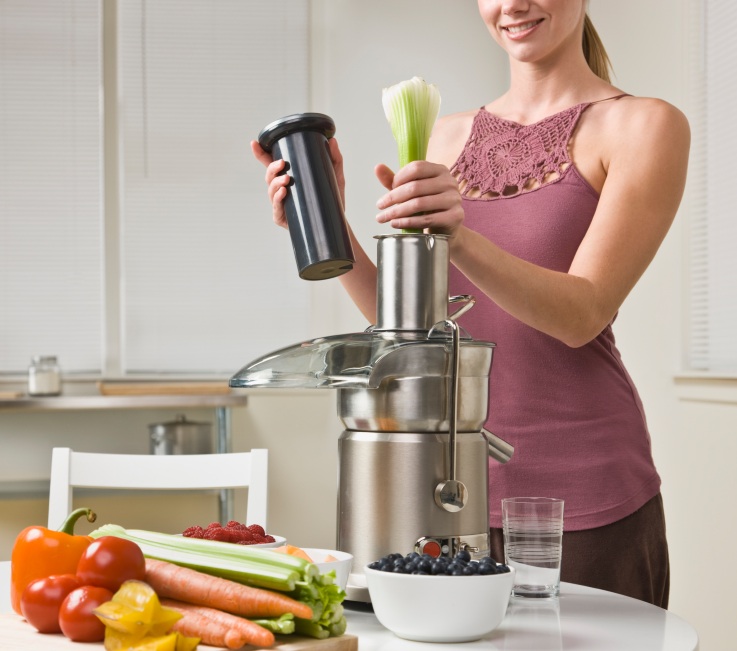Juicing Essentials
 By Heather Campbell, Shoreline Center for Healing, Traverse City
By Heather Campbell, Shoreline Center for Healing, Traverse City
There are many reasons to juice and knowing the essentials can help to understand its importance and maybe give you the boost you need to give it a try!
So why juice?
Juicing helps you absorb all the nutrients from vegetables. There are many of us that have impaired digestion due to less-than-optimal food choices we have made over the years. Juicing will help to “pre-digest” the vegetables, making the nutrients highly absorbable for your body.
Juicing allows you to consume an optimal amount of vegetables more efficiently. The optimal recommendation of fruits and vegetables by the RDA is now nine servings! Some people may find this a difficult task, but it can easily accomplished with a glass of vegetable juice.
Juicing gives way to a wider selection of vegetables in your diet. Many people eat the same vegetables every day. This violates the theory of regular food rotation to eliminate the chances of developing an allergy to a certain food. Juicing can help rotate your variety of veggies that you may not normally enjoy eating whole.
Raw, fresh vegetables are very alkaline-forming. This ensures that the body does not become too over-acidic. Over acidification is the common theme and cause of almost all conditions of ill health.
Juicing has sufficient amounts of phytochemicals. These chemicals found in plants are considered among the most powerful ways to fight disease. In addition, antioxidants and other immune enhancing elements are concentrated in juices.
Raw juices contain certain natural medicines, vegetal hormones and antibiotics. For example, string beans are said to have an insulin-like substance. Certain hormones needed by the pancreas to produce insulin are found in cucumber and onion juices. Fresh juices of tomatoes, garlic, onions and radish contain antibiotic properties.
It should be noted that vegetables and fruit juices are very different in terms of nutrition. In general, fruits and vegetables should be juiced separately. The exceptions are apple, carrot, beet and fennel which can be used for both.
Vegetables do not raise insulin levels like fruit juices. The only exception would be carrot and beet juices. One way around this is to add back some of the pulp from carrots and beets, giving additional fiber to the drink and thus eliminating the glycemic spike.